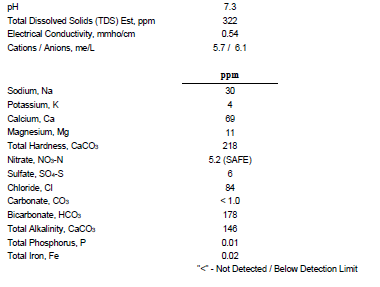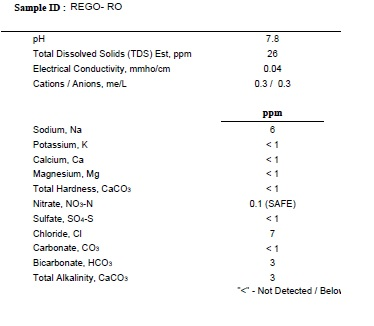Silver_Is_Money
Larry Sayre, Developer of 'Mash Made Easy'
For exclusively those who have had Ward Labs run an analysis on your water, please divide the Ward Labs reported alkalinity ppm by the Ward Labs reported TDS and report here. I'm trying to see if there is a generalized relationship between the two that can be made.
Here are mine from Ward Labs for my well water:
377 ppm Alkalinity
716 ppm TDS
Ratio = 377/716 = 0.527 = 52.7%
I'm trying to exclude municipal water reports since they are averages of multiple sources or over multiple time periods (or both), whereas a Ward Labs report is a sampling of a single source at a single time, so its ratio should be far more valid.
The reason behind this is that TDS meters are down to about $7 to $10 right now, and one of the main things that people need to know is their waters alkalinity. I'm trying to see if alkalinity can be ballpark estimated from ppm TDS alone.
Here are mine from Ward Labs for my well water:
377 ppm Alkalinity
716 ppm TDS
Ratio = 377/716 = 0.527 = 52.7%
I'm trying to exclude municipal water reports since they are averages of multiple sources or over multiple time periods (or both), whereas a Ward Labs report is a sampling of a single source at a single time, so its ratio should be far more valid.
The reason behind this is that TDS meters are down to about $7 to $10 right now, and one of the main things that people need to know is their waters alkalinity. I'm trying to see if alkalinity can be ballpark estimated from ppm TDS alone.











































![Craft A Brew - Safale S-04 Dry Yeast - Fermentis - English Ale Dry Yeast - For English and American Ales and Hard Apple Ciders - Ingredients for Home Brewing - Beer Making Supplies - [1 Pack]](https://m.media-amazon.com/images/I/41fVGNh6JfL._SL500_.jpg)















